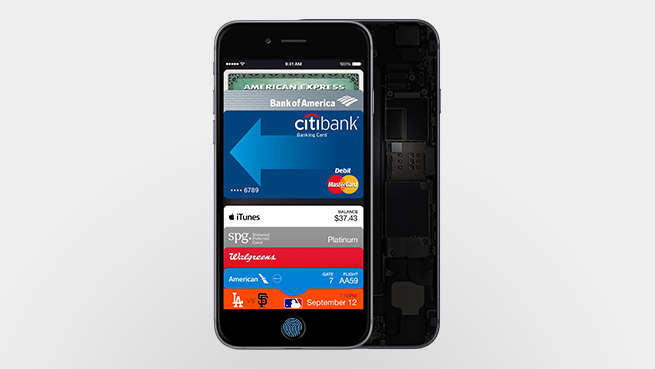Near field communication news now, and we’ve heard Apple is going to only allow the use of the iPhone 6’s internal NFC chip for Apple Pay purposes. The new payment method allows wireless payment with cards digitally stored on the iPhone.
The reports coming in mention that the NFC chip might one day become usable for third party apps and services, in the same way that Touch ID was restricted to official Apple business when the feature first arrived.
SEE ALSO: Windows 9 Event Coming September 30th
Eventually Apple allowed third parties to use the feature to authorise secure payments and other ID specific functions, but only once the new iOS 8 operating system arrived. Apps from companies such as Paypal might now use the fingerprint scanner to authorise their payments in iOS 8 enabled apps.
The information was confirmed by Apple themselves after the guys over at Cult of Mac reported that the NFC chip wouldn’t be ready for public access quite yet. This might be due to the fact that this new technology needs to be bug tested before being released into the wild.
SEE ALSO: Destiny Biggest UK Game Launch Ever
NFC chips can be used for a lot of things, such as pairing devices together just like Bluetooth, as well as sending files over the air between iPhones. The chip can also be used for interacting with other wireless devices, such as home automation systems like Nest.
The NFC chip is also featured in the upcoming Apple Watch, with Apple’s keynote demoing the device’s ability to even unlock a hotel room with the flick of the wrist near the door keypad. according to the keynote, the device can be used to confirm your identity at airport check in before getting to the hotel room as well as unlocking the door.
Although for now the NFC chip in the iPhone 6 and the Apple Watch is simply just a part of the Apple Pay feature, we could see further development of the software behind Apple Pay, in conjunction with the hardware in the chip, to make the NFC capabilities of this new generation of Apple mobile devices really come to life.
Source: Cult of Mac
Via: The Verge


